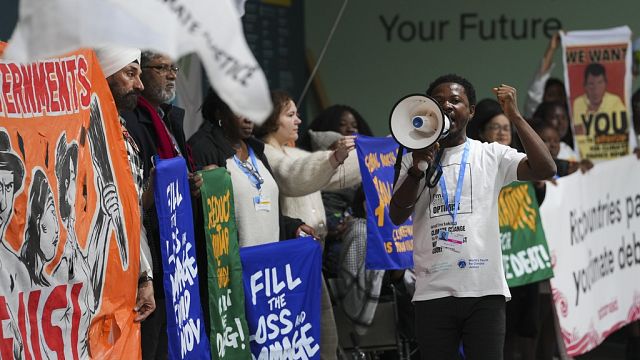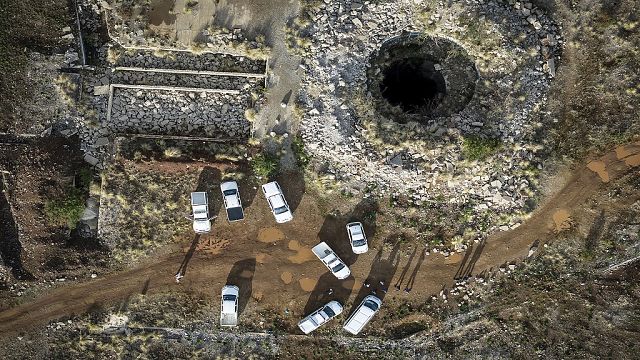By Paul Mamattah
In a bid to improve the quality of information shared during the upcoming 2024 general election, Dubawa West Africa, an Investigative and fact-checking private organisation, has organised a two-day fact-checking training programme for journalists, bloggers and influencers ahead of the upcoming December 7 general electionin Accra.
The event drew together journalists, bloggers and influencers to acquire knowledge on how to fact-check information before, during, and after the general elections and how to fact-check their credibility and authenticity.
The training was aimed at encouraging a more engaged and information-literate citizenry that would be capable of making informed decisions with journalists, bloggers and influencers leading that charge.
Participants were taken through topics including identifying information disorder, fact-checking methodology, digital tools, blogging ethics, and legal implications of spreading false information.
In her remarks, the Project Manager at Dubawa West Africa, Roselena Ahiable, emphasized the importance of equipping media professionals with fact-checking skills to combat misinformation, disinformation and malformation.
She emphasized that many within these groups currently lack essential knowledge in information literacy and verification, prompting the organization to conduct a specialized training programme.
“This training aims to bridge the knowledge gap and arm participants with the skills necessary to critically analyze the information they encounter, thus enabling them to provide the public with accurate and reliable news,” she said.
Madam Ahiable, noted that Dubawa West Africa, which has been operational since 2019 and officially launched in 2020 as one of Ghana’s pioneering fact-checking organisations, aims to foster a more informed public adding that the initiative has also included outreach to journalists in rural areas, addressing the evolving landscape in which information is increasingly manipulated and weaponized.
“Journalists are becoming more aware that information is a powerful currency and are adapting to this new reality,” Madam Ahiable noted.
She observed positive changes, with many journalists integrating fact-checking practices into their reporting processes. However, she also acknowledged that more work remains to be done.
Madam Ahiable underscored the importance of prioritizing fact-checking to ensure that the information disseminated to the public is accurate and trustworthy and contributes to a healthier information ecosystem.
Highlights on the vital role of digital technologies in re-democratizing the media space, a lecturer at the Department of Communication at the University of Ghana,Dr Aurelia Ayisi, noted that in today’s society, bloggers, influencers and content creators now have a significant following, challenging the traditional media’s dominance.
With elections approaching, Dr. Ayisi emphasized the importance of collaboration among journalists, bloggers, and content creators to ensure the accuracy of the information they share rather than focusing on being the first to publish a story, the priority should be on getting the facts right to prevent the spread of false news.
According to her, the integrity of the electoral process is at stake when inaccurate information is shared, leading to a loss of trust among the public adding that, to make informed decisions about their leaders, voters rely on accurate and trustworthy information, making the role of journalists and content creators more critical than ever during election season.
On his part, Immediate-past President of the Ghana Journalists Association (GJA), Affail Monney, called on journalists, bloggers, and influencers to adhere to the ethical standards of media work and emphasized on the need for balance, fairness, reliability, and timeliness in their reportage, underscoring the importance of providing accurate and informative coverage of political activities and issues.
He stressed the role of media practitioners in enabling voters to make informed decisions by thoroughly researching and scrutinizing political candidates, reminding them that their work should not be influenced by personal biases or partisan interests.
Furthermore, Mr Monney, urged journalists, bloggers, and influencers to safeguard the democracy of Ghana through responsible reporting and emphasized the importance of upholding the principles of free and fair elections by presenting the truth, investigating hidden agendas, and providing comprehensive analysis of issues.
Additionally, the former GJA President encouraged media practitioners to provide equal opportunities for political parties and candidates to communicate their policies to the publicand emphasized the crucial role of media in promoting transparency and accountability in the electoral process.
The post Dubawa West Africa trains journalists, bloggers, and influencers on fact-checking ahead of 2024 election appeared first on The Herald ghana.
Discover more from HOT SOURCE NEWS
Subscribe to get the latest posts sent to your email.



